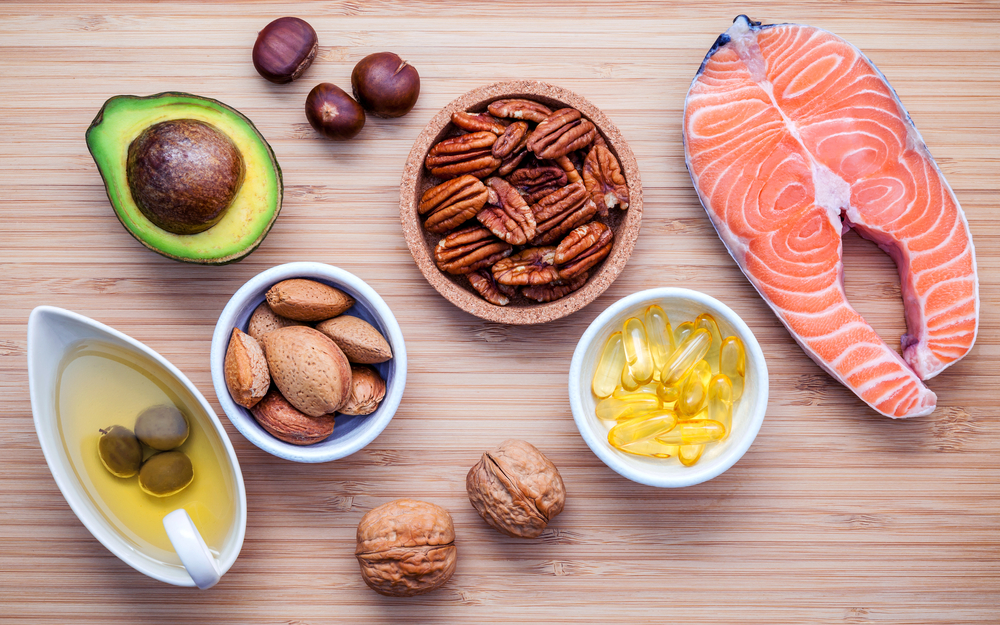Nutrition for Strong Bones and Healthy Joints
In the pursuit of overall health and well-being, proper nutrition often takes center stage. While many understand the significance of a well-balanced diet for body and mind, the impact of nutrition on bones and joints is often overlooked. However, nurturing our skeletal system with the right nutrients is essential for maintaining strong bones and healthy joints throughout our lives.
So, how can we harness the power of nutrition to promote skeletal health? Let’s delve into the world of essential nutrients, dietary choices, and lifestyle habits that can strengthen our bones and joints and keep them in optimal condition.
The Role of Nutrients in Skeletal Health
The proper development and maintenance of strong bones and healthy joints depend on a range of vital nutrients. Let’s explore the nutrients that play a pivotal role in nourishing our skeletal system:
Calcium: Building the Foundation
Calcium is like the foundation of a house; it forms the basis for strong bones. Adequate calcium intake is crucial throughout life, but it becomes increasingly important during childhood and adolescence when bone growth is at its peak. Including calcium-rich foods in your diet, such as dairy products, leafy greens, and tofu, can help maintain healthy bone mass and prevent conditions like osteoporosis.

Vitamin D: Unlocking Calcium’s Potential
To fully unlock the potential of calcium, our bodies need Vitamin D. This sunshine vitamin aids calcium absorption, ensuring it reaches the bones where it is needed. Exposure to sunlight and consuming foods like fatty fish, egg yolks, and fortified dairy products can help meet your Vitamin D requirements.
Magnesium: Forming the Matrix
Magnesium works in synergy with calcium to build and maintain strong bones. This mighty mineral stimulates the production of calcitonin, a hormone that helps regulate calcium levels. Incorporate magnesium-rich foods like dark chocolate, whole grains, nuts, and seeds into your diet to support your bones and joints.
Vitamin C: Collagen’s Ally
Collagen is a structural protein that forms the foundation for our joints, tendons, and ligaments. Vitamin C is essential for the production of collagen, ensuring the integrity and strength of our connective tissues. Include citrus fruits, berries, peppers, and leafy greens in your diet for a healthy dose of Vitamin C.
The Power of Healthy Dietary Choices
While incorporating bone-strengthening nutrients is crucial, adopting a wholesome diet is equally important. Here are some dietary choices that can pave the way to strong bones and healthy joints:
Embrace a Rainbow of Fruits and Vegetables
Filling your plate with vibrant fruits and vegetables not only nourishes your body with essential vitamins and minerals but also provides antioxidants that combat inflammation and support joint health. Include a variety of colors in your meals, from leafy greens to bright berries, for a diverse range of nutrients.
Prioritize Lean Protein Sources
Protein is a key building block for healthy bones and joints. Ensure you get a sufficient amount of lean protein, such as poultry, fish, legumes, and tofu, to support tissue repair and preserve muscle mass.
Don’t Forget Good Fats
Healthy fats, like those found in avocados, olive oil, nuts, and fatty fish, are crucial for joint health. Omega-3 fatty acids, in particular, exhibit anti-inflammatory properties, reducing joint stiffness and promoting flexibility.
Hydrate, Hydrate, Hydrate!
Proper hydration is often overlooked but is crucial for maintaining the integrity and lubrication of our joints. Drink ample amounts of water throughout the day and limit caffeine and sugary drink consumption.
Lifestyle Habits for Strong Bones and Joints
In addition to a nourishing diet, certain lifestyle habits can significantly impact bone and joint health:
Get Moving: Exercise for Strong Bones
Regular weight-bearing exercises, such as walking, dancing, or weightlifting, play a pivotal role in stimulating bone growth and maintaining bone density. Include exercises that put stress on your bones to keep them strong and resilient.
Maintain a Healthy Weight
Excess weight can strain your joints, leading to joint pain and greater susceptibility to conditions like osteoarthritis. Maintain a healthy weight through a balanced diet and regular physical activity to alleviate pressure on your joints.
Ditch Bad Habits: Smoking and Excessive Alcohol
Smoking impedes blood flow to bones, while excessive alcohol consumption hampers calcium absorption. Both habits can weaken bones and increase the risk of fractures. Quit smoking and limit alcohol intake to promote skeletal health.

Prioritize Rest and Recovery
Adequate rest and quality sleep allow for essential repair and rejuvenation of bones and joints. Prioritize a good night’s sleep and incorporate rest days into your exercise routine to prevent overuse injuries and maintain joint health.
The Role of Protein in Maintaining Bone and Joint Health
Protein is an essential component for the growth and maintenance of our bones and joints. It helps in the formation of collagen, which provides structure and elasticity to our joints. Including lean meats, poultry, fish, beans, and lentils in our diet ensures an adequate intake of protein for optimal bone and joint health.
Omega-3 Fatty Acids and Their Impact on Bone and Joint Health
Omega-3 fatty acids exhibit anti-inflammatory properties and contribute to joint health by reducing inflammation. They are found abundantly in fatty fish like salmon, mackerel, and sardines. Including these fish in our diet or opting for omega-3 supplements can support the health of our bones and joints.
Antioxidants for Strong Bones and Healthy Joints
Antioxidants combat oxidative stress and inflammation, which can contribute to bone resorption and joint damage. Foods rich in antioxidants, such as colorful fruits and vegetables, nuts, and seeds, help protect our bones and joints from cellular damage.
The Power of Exercise in Supporting Bone and Joint Health
Exercise not only strengthens our muscles but also promotes bone density and joint flexibility. Incorporating different types of exercises into our routine provides a comprehensive approach to maintaining bone and joint health.
- Weight-Bearing Exercises: Walking, running, dancing, and hiking are excellent weight-bearing exercises that put stress on our bones, stimulating bone remodeling.
- Strength Training: Resistance exercises, such as lifting weights or using resistance bands, help build and maintain muscle mass, which supports healthy joints.
- Flexibility and Range of Motion: Stretching exercises, yoga, and tai chi improve joint flexibility and range of motion, reducing the risk of joint stiffness or injury.
The Link Between Nutrition, Bones, and Joints
It is essential to understand the interconnectedness of nutrition, bones, and joints. The nutrients we consume directly impact our bone density, joint health, and overall musculoskeletal system. A well-balanced and nutrient-rich diet can promote optimal bone and joint health, while a poor diet lacking essential nutrients can weaken our bones and increase the risk of joint problems.
Diet Tips to Promote Bone and Joint Health
Now that we understand the importance of nutrition in maintaining strong bones and healthy joints, here are some diet tips to incorporate into our daily routine:
- Incorporating Calcium-Rich Foods: Consume dairy products, leafy greens, and fortified foods to ensure an adequate intake of calcium.
- The Importance of Vitamin D: Get regular sunlight exposure and include vitamin D-rich foods like fatty fish, eggs, and fortified dairy products.
- Including Foods High in Magnesium and Phosphorus: Opt for foods like nuts, whole grains, legumes, and lean meats to meet your magnesium and phosphorus requirements.
- Boosting Vitamin K Intake: Incorporate leafy greens, broccoli, Brussels sprouts, and other vitamin K-rich foods into your meals.
- Adding Vitamin C-Rich Foods to Your Diet: Citrus fruits, berries, bell peppers, and tomatoes are excellent sources of vitamin C.

Foods to Avoid for Optimal Bone and Joint Health
While incorporating nutritious foods into our diet is important, it is equally crucial to limit or avoid certain foods that may have a negative impact on our bones and joints:
- Limiting Processed and Sugary Foods: Processed foods and excessive sugar consumption can contribute to inflammation and weaken our bones and joints.
- Reducing Sodium Intake: High sodium intake can contribute to bone mineral loss and negatively affect joint health.
- Moderating Alcohol Consumption: Excessive alcohol consumption can interfere with the absorption of essential nutrients and weaken bones.
- Watching Your Caffeine Intake: While moderate caffeine consumption is generally safe, excessive intake may lead to calcium excretion and weaken bones.
FAQs
Can nutrition alone suffice for strong bones and healthy joints?
While nutrition is crucial, incorporating exercise and healthy lifestyle habits is vital for optimal bone and joint health.
Are supplements necessary for bone and joint health?
In most cases, a well-balanced diet can provide all the necessary nutrients. However, consulting with a healthcare professional can help determine if supplements are needed.
At what age should one start focusing on nutrition for bone and joint health?
It’s never too early or too late! Building strong bones begins during childhood, but individuals of all ages can benefit from proper nutrition for skeletal health.
Conclusion: Nutrition for Strong Bones
Nurturing your bones and joints through proper nutrition is a lifelong commitment to overall well-being. By incorporating essential nutrients, dietary choices, and lifestyle habits, you can unleash the power of nutrition and pave the way for strong bones and healthy joints. Remember, a nutrient-rich plate, regular exercise, and a healthy lifestyle are the keys to maintaining a strong skeletal foundation that serves you well throughout your life. So, dive into the world of nutrition and give your bones and joints the care they deserve.
Also Read:



